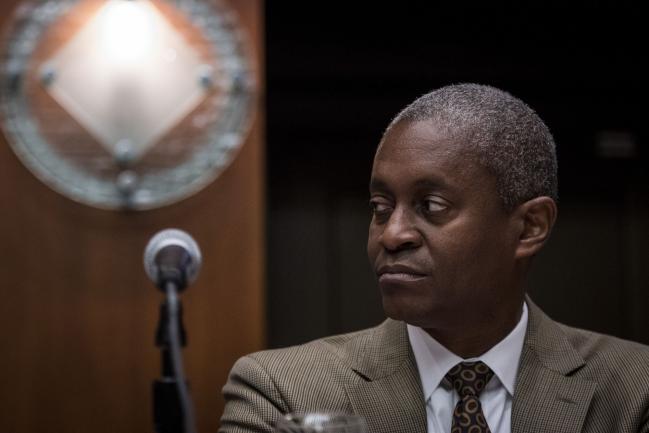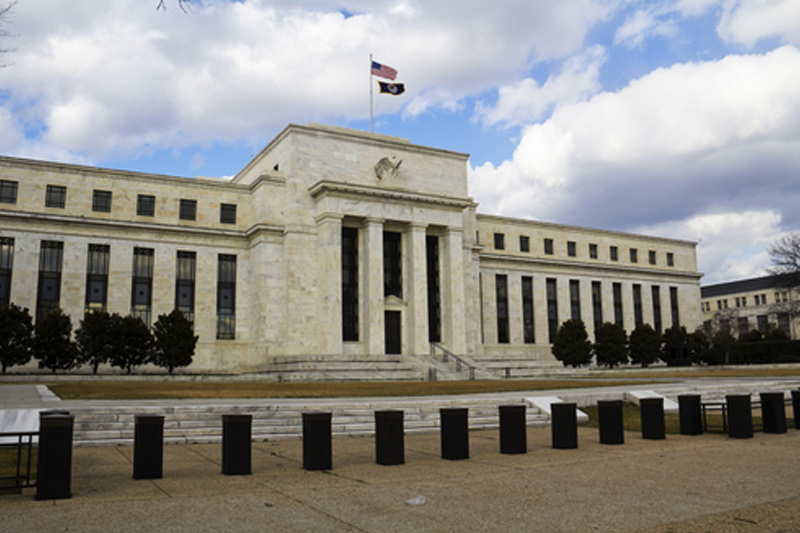(Bloomberg) -- The Federal Reserve, which cut its primary interest rate to near zero March 15 in the face of the economic crisis prompted by the coronavirus, isn’t anticipating the use of negative rates that have been tried in Europe and Japan, two Fed presidents said Monday.
“At best, we’d have to study it more, but I don’t anticipate that being a tool we would be using in the U.S.,” Federal Reserve Bank of Chicago President Charles Evans said from Chicago.
“I am not a big fan of going into the negative rate territory,” Atlanta Fed President Raphael Bostic said in Atlanta.
Traders in fed funds futures markets last week were pricing in the possibility that the central bank will cut its policy rate below zero, which dragged the two-year Treasury yield to a record low. Fed Chairman Jerome Powell has consistently pushed back against the idea of taking interest rates negative, and that message has been echoed by a wide range of U.S. central bankers in recent years.
Speaking to the Rotary Club of Atlanta, Bostic said the idea of negative rates was “further than what I am ready to contemplate right now.”
Bostic added that the Fed officials have said all tools would be considered in a crisis, and the central bank would not take any potential remedy off the table.
Weaker Tool
“But for me, negative rates is one of the weaker tools in the tool kit, if you will,” he said. “I am really not anticipating supporting that anytime soon.”
That view was echoed closely by Evans in Chicago, who agreed it’s a potential tool, just not one he’s looking to use.
“I would say that, at best, that would need to be studied more carefully,” he said. “I frankly think the mechanism for how that actually benefits economies needs to be understood, and the differing incentives that it provides for economic actors.”
During the 2007-2009 recession, Fed officials considered a variety of tools and chose not to deploy negative rates, Powell has pointed out in the past.
“We do not see negative policy rates as likely to be an appropriate policy response here in the U.S.,” Powell told reporters on March 15 after the Fed cut its short-term interest rate target effectively to zero.
The European Central Bank and the Bank of Japan have lowered short-term interest rates below zero, although policy makers at both monetary authorities have recently shown a reluctance to push them further into negative territory.
Bostic was also dismissive of another idea that some investors have raised -- that the central bank could purchase stocks.
“That is not something we would entertain as a first pass,” he said. “That kind of support is typically best done through the fiscal side as opposed to the monetary side.”
©2020 Bloomberg L.P.

